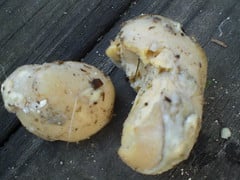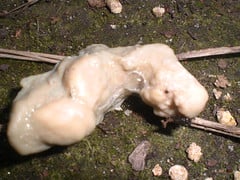I'm not sure if I'm posting this to the correct forum category but here it goes.
This morning when I went to let the gang out of the coop, I found this on the floor of the coop


Needless to say I was horrified. I totally thought that one of my chickens internal organs had come out of her. I immediately rushed it over to my vet's office and he said he didn't know what is was but he said it was definitely was not internal organs because I would have a dead chicken if that were the case. I thought to myself "he has to be kidding, he has no idea what this thing is? really?" He said that his best guess was that it was a deformed egg. I did some research on my lunch break and was able to come to the conclusion that this was a "lash egg". I've never heard of this before. I have 10 chicken books and none of them mentions anything about a lash egg. Has anybody else ever seen this before?
This morning when I went to let the gang out of the coop, I found this on the floor of the coop


Needless to say I was horrified. I totally thought that one of my chickens internal organs had come out of her. I immediately rushed it over to my vet's office and he said he didn't know what is was but he said it was definitely was not internal organs because I would have a dead chicken if that were the case. I thought to myself "he has to be kidding, he has no idea what this thing is? really?" He said that his best guess was that it was a deformed egg. I did some research on my lunch break and was able to come to the conclusion that this was a "lash egg". I've never heard of this before. I have 10 chicken books and none of them mentions anything about a lash egg. Has anybody else ever seen this before?






